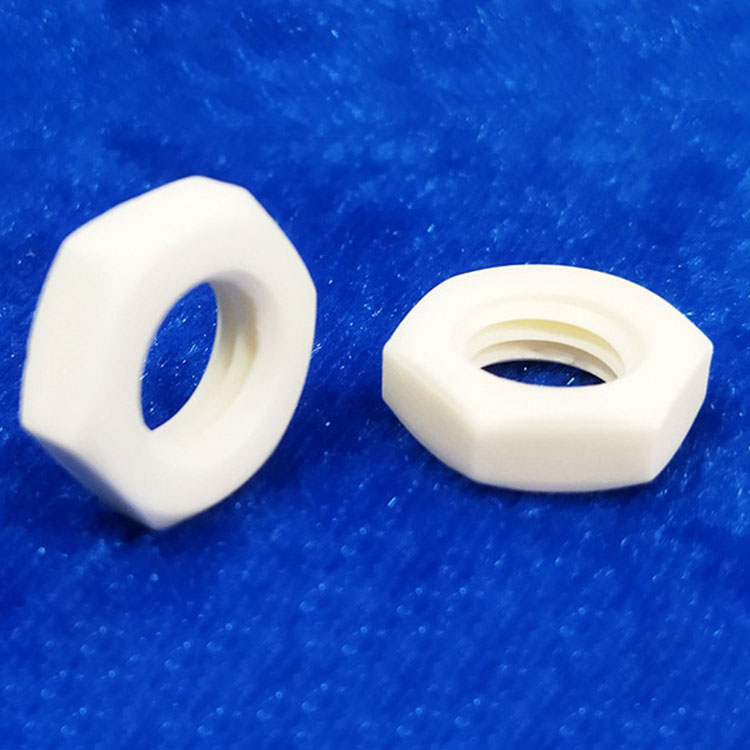What are the disadvantages of alumina ceramic?
2024-01-06
Alumina ceramic, also known as aluminum oxide, is a versatile and widely used material known for its excellent mechanical, thermal, electrical, and chemical properties. Some of the key advantages of alumina ceramic include:

1. High Hardness: Alumina ceramic is exceptionally hard, ranking high on the Mohs scale of hardness. This property makes it highly resistant to wear, abrasion, and scratching, making it suitable for use in various industrial applications where durability is crucial.
2. Excellent Wear Resistance: Its high hardness and wear resistance make alumina ceramic an ideal material for components subject to high levels of friction, erosion, and wear. It is commonly used in manufacturing wear-resistant parts such as seals, bearings, liners, cutting tools, and wear plates.
3. High Temperature Resistance: Alumina ceramic exhibits excellent thermal stability and can withstand high temperatures without deforming or losing its mechanical properties. It has a high melting point and can operate at temperatures exceeding 1000°C, making it suitable for use in high-temperature applications like furnaces, kilns, and automotive components.
4. Chemical Resistance: Alumina ceramic is highly resistant to chemical corrosion from many acids, alkalis, and other harsh chemicals. This property makes it suitable for use in environments where exposure to corrosive substances is prevalent, such as chemical processing, laboratory equipment, and the semiconductor industry.
5. Electrical Insulation: It has excellent electrical insulation properties, making it an ideal material for electrical insulators and components used in electrical and electronic devices. Its high dielectric strength and resistance to electrical breakdown make it suitable for applications in the electronics industry.
6. Biocompatibility: In some forms, such as medical-grade alumina ceramic, it is biocompatible and non-toxic. This property makes it suitable for use in medical implants, prosthetics, and dental applications.
7. Dimensional Stability and Precision: Alumina ceramic has excellent dimensional stability, maintaining its shape and size even under extreme conditions. This property is beneficial in applications requiring high precision and tight tolerances.
8. Lightweight: Despite its hardness and strength, alumina ceramic is relatively lightweight compared to some other engineering materials, contributing to its use in applications where weight is a concern.
Overall, the combination of its exceptional hardness, wear resistance, high-temperature tolerance, chemical stability, and electrical insulation properties makes alumina ceramic a preferred choice in various industrial, engineering, electronic, medical, and specialized applications.


